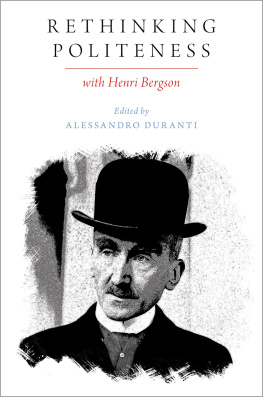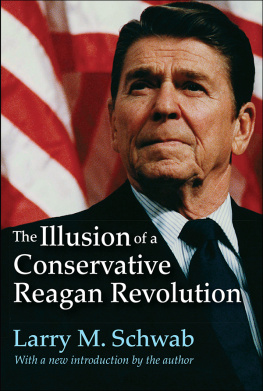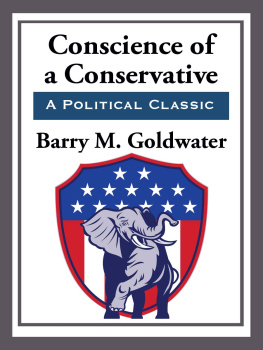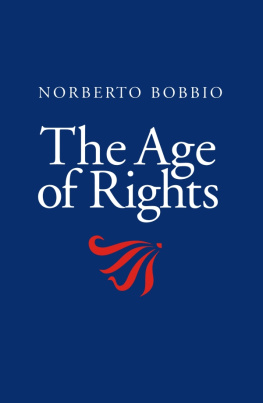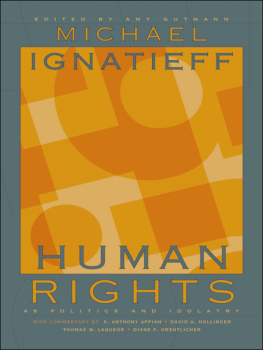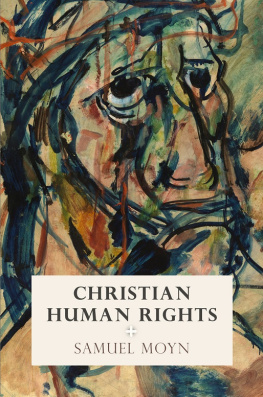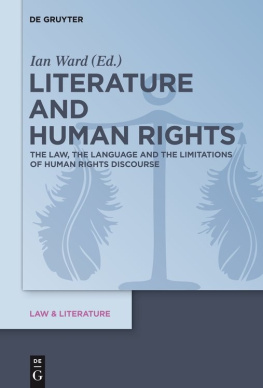Duranti - The Conservative Human Rights Revolution
Here you can read online Duranti - The Conservative Human Rights Revolution full text of the book (entire story) in english for free. Download pdf and epub, get meaning, cover and reviews about this ebook. year: 2016, publisher: Oxford University Press, genre: Politics. Description of the work, (preface) as well as reviews are available. Best literature library LitArk.com created for fans of good reading and offers a wide selection of genres:
Romance novel
Science fiction
Adventure
Detective
Science
History
Home and family
Prose
Art
Politics
Computer
Non-fiction
Religion
Business
Children
Humor
Choose a favorite category and find really read worthwhile books. Enjoy immersion in the world of imagination, feel the emotions of the characters or learn something new for yourself, make an fascinating discovery.

The Conservative Human Rights Revolution: summary, description and annotation
We offer to read an annotation, description, summary or preface (depends on what the author of the book "The Conservative Human Rights Revolution" wrote himself). If you haven't found the necessary information about the book — write in the comments, we will try to find it.
Duranti: author's other books
Who wrote The Conservative Human Rights Revolution? Find out the surname, the name of the author of the book and a list of all author's works by series.
The Conservative Human Rights Revolution — read online for free the complete book (whole text) full work
Below is the text of the book, divided by pages. System saving the place of the last page read, allows you to conveniently read the book "The Conservative Human Rights Revolution" online for free, without having to search again every time where you left off. Put a bookmark, and you can go to the page where you finished reading at any time.
Font size:
Interval:
Bookmark:
Marco Duranti


Oxford University Press is a department of the University of Oxford. It furthers the Universitys objective of excellence in research, scholarship, and education by publishing worldwide. Oxford is a registered trade mark of Oxford University Press in the UK and certain other countries.
Published in the United States of America by Oxford University Press
198 Madison Avenue, New York, NY 10016, United States of America.
Oxford University Press 2017
All rights reserved. No part of this publication may be reproduced, stored in a retrieval system, or transmitted, in any form or by any means, without the prior permission in writing of Oxford University Press, or as expressly permitted by law, by license, or under terms agreed with the appropriate reproduction rights organization. Inquiries concerning reproduction outside the scope of the above should be sent to the Rights Department, Oxford University Press, at the address above.
You must not circulate this work in any other form and you must impose this same condition on any acquirer.
Library of Congress Cataloging-in-Publication Data
Names: Duranti, Marco, author.
Title: The conservative human rights revolution : European identity, transnational politics, and the origins of the European convention / Marco Duranti.
Description: New York, NY : Oxford University Press, [2017] | Includes bibliographical references and index.
Identifiers: LCCN 2016017656 (print) | LCCN 2016029785 (ebook) |
ISBN 9780199811380 (hardcover : acid-free paper) | ISBN 9780190638665 (Updf) | ISBN 9780190638672 (Epub)
Subjects: LCSH: Human rightsEuropeHistory. | European Court of Human RightsHistory. | Human rightsEuropean Union countriesHistory. |
Civil rightsEuropeHistory. | Civil rightsEuropean Union countriesHistory.
Classification: LCC KJC5138 .D87 2017 (print) | LCC KJC5138 (ebook) | DDC 341.4/8094dc23
LC record available at https://lccn.loc.gov/2016017656
To my parents
I was fortunate to have had many sources of guidance and support during the course of writing this book. During my university studies, I had the privilege of working under two of the foremost practitioners of comparative and transnational European history. Charles Maier, supervisor of my Harvard College history honors thesis, introduced me to the multifarious means by which Western European conservatives adapted to the shifting terrain of politics in the aftermath of the two world wars. Jay Winter, chair of my dissertation committee in the Department of History at Yale University, showed me on countless occasions ways to transform sparse intuitions and mountains of archival data into a coherent whole. From Jay, I learned how to be a researcher, a writer, and a teacher. I would never have deciphered the counterrevolutionary chameleons of my book without first familiarizing myself with the stalwart republicans of his. Nor would I have discerned the retrospective orientation of postwar human rights projects were it not for his seminal work on practices of remembrance in the aftermath of the First World War.
No less valuable were the contributions of the other members of my dissertation committee: Ute Frevert, John Lewis Gaddis, Samuel Moyn, and Frank Snowden. Utes challenging questions spurred me to supplement my updated Great Man approach to history with a socio-cultural perspective. John gave me the critical tools to filter through the distracting minutiae of my ponderous drafts, see the grand strategies at work, and recognize the difficulty of sorting my protagonists into tidy political categoriesnot to mention the confidence to write about the present-day policy implications of my research. Sam, the external reader, provided me with tremendous encouragement and inspiration throughout this monographs odyssey from dissertation to book, with our scholarly collaborations and his groundbreaking publications on the genealogy of human rights doing much to shape my more modest interventions in this now burgeoning field. Frank was ever my intellectual ballast, providing me with an indispensable foundation in the history of fascism and socialism while gently bringing me back from the brink when my enthusiasm got the better of me. I also would like to express my appreciation to participants in International Security Studies and the Legal History Forum a for their invaluable insights into this books fields of inquiry.
I could not have undertaken my research without funding provided by European Union Studies at Yale, the Fox International Fellowship Program, the Fulbright Scholar Program, International Security Studies at Yale, the Whitney and Betty MacMillan Center for International and Area Studies at Yale, the Max Planck Society for the Advancement of Science, and the School of Philosophical and Historical Inquiry at the University of Sydney. My profound gratitude goes to Aleida Assmann, who supported my writing and created a collaborative forum for the discussion of my work at the University of Konstanz along with her colleagues Nina Fischer and Birgit Schwelling, and Maurice Vaisse, who did so much to welcome me into the vibrant intellectual community of Sciences Po Paris.
While revising the original manuscript I relied on the advice and detailed comments of many individualsindeed, too many to list them in their entirety. I am particularly grateful for the helpful suggestions and constructive critiques made by my editor, Susan Ferber, and the anonymous reviewers for Oxford University Press. I would also like to express my appreciation for the superlative editorial assistance of Alexandra Dauler, Julie Mullins, Nancy Rebecca, and the rest of the production team. Among those historians who gave me the most copious feedback are my departmental colleagues Barbara Caine, Andrew Fitzmaurice, Sheila Fitzpatrick, John Gagn, Chris Hilliard, Julia Horne, Dirk Moses, Penny Russell, Glenda Sluga, Natasha Wheatley, and Shane White. The extraordinary generosity and fellowship of all the members of the University of Sydneys History Department are a true blessing. To my students, I salute you for having taught me muchand forgiven me muchduring my fledging years as a professional historian.
This book benefited greatly from comments received on presentations of my work in progress at colloquia, conferences, panels, seminars, and workshops, including those held at the American Historical Association meeting in Washington, DC; Boston College; Columbia University; the North American Conference on British Studies in Denver; Oxford University; Princeton University; the University of Adelaide; the University of California, Berkeley; the University of California, Los Angeles; the University of Chicago; the University of Groningen; the University of Helsinki; the University of Jena; the University of Konstanz; the University of New South Wales; the University of St Andrews; the University of Sydney; the University of Technology, Sydney; and Yale University. The final stages of manuscript revisions were also informed by the thoughtful readers comments posted in response to my online piece at openDemocracy.net and the rejoinder by Ersan Sen and Mahmut Can Senyurt.
I would like to extend my thanks to members of the staffs of the Archivio Centrale dello Stato, Archivio Storico Diplomatico, Bodleian Library Special Collections at Oxford University, British National Archives, Carnegie Foundation Archives, Centre des Archives Diplomatiques de Nantes, Centre des Archives Diplomatiques de Paris, Centre des Archives dOutre-Mer, Centre Historique des Archives Nationales de France, Churchill Archives Centre, Council of Europe Archives, Historical Archives of the European Union, Hoover Institution Archives, Istituto Paolo VI, New York Public Library Archives and Manuscripts, Politisches Archiv des Auswrtigen Amts, UCLA Library Special Collections, United Nations Archives, UNESCO Archives, and Yale University Library Manuscripts and Archives. I am particularly appreciative of the assistance of Jens Boel, Marie Gallup, Mahmoud Ghander, Johan Joor, Jean-Marie Palayret, Caroline Piketty, and Jacobine Wieringa, as well of the willingness of Maria Romana Catti De Gasperi to grant me access to the papers of her father Alcide De Gasperi before they were transferred to the custody of the Historical Archives of the European Union in Florence. In addition, I would like to give special thanks to my research assistants, Anna Bara, Jenny Finchmann, Nathan Kurz, Anna Oelhaf, Ecem Oskay, and Kalie Wetowick.
Font size:
Interval:
Bookmark:
Similar books «The Conservative Human Rights Revolution»
Look at similar books to The Conservative Human Rights Revolution. We have selected literature similar in name and meaning in the hope of providing readers with more options to find new, interesting, not yet read works.
Discussion, reviews of the book The Conservative Human Rights Revolution and just readers' own opinions. Leave your comments, write what you think about the work, its meaning or the main characters. Specify what exactly you liked and what you didn't like, and why you think so.

